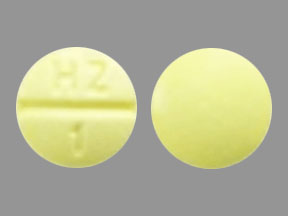
Methotrexate Sodium Coupons & Savings Card – Discount Prices from $30.74
Generic for: Trexall
My prescription
Edit
2.5MG, Methotrexate Sodium (96 Tablets)
Select pharmacy

CVS
$31.91
COUPON PRICE
Albertsons
$30.74
COUPON PRICE
Walgreens
$34.32
COUPON PRICE
Walmart
$48.30
COUPON PRICEMethotrexate Sodium savings card
Show this card to your pharmacist
Albertsons
$30.74
BIN
ID
PCN
GRP
019876
LH04C234E4
CHIPPO
LHX
Powered by
More prescriptions for rheumatoid arthritis
More prescriptions for rheumatoid arthritis
Price history for Trexall (brand) & Methotrexate Sodium (generic)
96 Tablets, 2.5MG
Average retail price for Trexall
Average retail price for Methotrexate Sodium
Average SaveHealth price for Methotrexate Sodium
Our price history data is based on aggregated prescription data collected from participating pharmacies in America. Our prescription data updates daily to reflect the latest price changes. If you notice a missing data point, it means there wasn't sufficient data available to generate a monetary value for that date.
We analyzed Methotrexate Sodium prices for (2.5MG, 96 Tablets) over the last 12 months. The average retail price was $184.26, while the average price using the SaveHealth discount card was $30.38. That's a savings of approximately 83.51% when using our Methotrexate Sodium coupon.
Compared to the generic version, Trexall had an average price of $117.43 over the same time period. With the SaveHealth savings card, Methotrexate Sodium is 74.13% cheaper on average than Trexall.
*Retail prices are based on pharmacy claims data, and may not be accurate when we don't have enough claims.
Methotrexate Sodium dosage forms
Dosage Quantity Price from Per unit 2.5MG 96 Tablets $30.74 $0.32 2.5MG 1 Tablet $2.71 $2.71 2.5MG 20 Tablets $6.75 $0.34 2.5MG 24 Tablets $7.60 $0.32 2.5MG 30 Tablets $8.88 $0.30 2.5MG 36 Tablets $15.12 $0.42 2.5MG 50 Tablets $19.63 $0.39 2.5MG 100 Tablets $31.39 $0.31
| Dosage | Quantity | Price from | Per unit |
|---|---|---|---|
| 2.5MG | 96 Tablets | $30.74 | $0.32 |
| 2.5MG | 1 Tablet | $2.71 | $2.71 |
| 2.5MG | 20 Tablets | $6.75 | $0.34 |
| 2.5MG | 24 Tablets | $7.60 | $0.32 |
| 2.5MG | 30 Tablets | $8.88 | $0.30 |
| 2.5MG | 36 Tablets | $15.12 | $0.42 |
| 2.5MG | 50 Tablets | $19.63 | $0.39 |
| 2.5MG | 100 Tablets | $31.39 | $0.31 |
